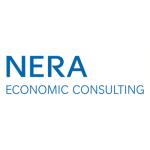Historically, the intra-group transfer pricing treatment of top management functions of multinational companies has been the neglected step-child in terms of economic analysis. This matters less in set-ups where the group or divisional headquarter operates as the central entrepreneur in the value chain, which accrues most of the (residual) profit anyway, be it through product pricing, or profit-absorbing royalties. In the other value chain set-ups, the situation is entirely different. Sometimes no remuneration is made for the management at all on the grounds that central management functions are of 'non-operative nature' and 'shareholder related'. Rarely, as this is often considered too cumbersome, central management services are market-priced based on the activity and time spent.
Most frequent is the use of cost allocation based charges. Activities of top management cost centres are first arbitrarily split up into 'shareholder-related activities' and consulting-type 'operating services' – mostly through subjective assessments and rarely backed up by substantial documentation. Second, the determined costs for operating services are allocated to the different service recipients, usually through the application of an appropriate cost allocation key (e.g. revenue, gross margin, headcount, capital invested) and a benchmarked cost plus service return. This traditional approach is tantamount to saying that top management services can be remunerated as 'routine' – i.e. a type of activity that could alternatively be outsourced. In a massively changing economic and regulatory environment, it is highly questionable whether such traditional approaches can sustainably be defended in tax audits where the challenge will inevitably arise.
The existing transformative economic environment (with the key megatrends of globalisation and digital transformation) has massively changed the traditional role of C-suite type activities from governance and control to being the economic driving force in companies. Top management leads the operational transformation of the group, its contribution to success and failure having a massive impact on the short-, medium- and long-term developments of operating entrepreneurial companies in the group value chain.
For the group to strive in the digital revolution and benefit rather than suffer from the massive upcoming of a new digital landscape, the CEO has in many groups become the driving force behind the development and implementation of new business models, digital solutions and consistent M&A activities that should enhance the group revenues and profitability. The COO is the master behind many (data-based) centralising Industry 4.0 initiatives that will help optimise the group operating model (footprint and supply chain operations) and increase underlying profitability. The CIO's role is transformed from the head of an important back-office IT-infrastructure support to front-line, high-value creating responsibilities for the group's digital customer and supplier service platforms. As a consequence, the CFO finance functions as business enabler shift from traditional control and compliance functions towards strategic transformational challenges. As it will fundamentally reshape the value propositions and way of working of multinationals, digital transformation is a high-opportunity, high-risk, and fairly costly challenge beyond the control of individual group companies that can only succeed through strong leadership, economic decision-making, and ownership at the level of the C-Suite.
The latest OECD initiatives provide new paradigms, in particular regarding decision making and intangible value creation. The OECD has stressed the importance of operating guidance, decision making and risk control as critical factors to be considered in the allocation of profits. This guidance will inevitably incentivise tax authorities to challenge intercompany structures that effectively compensate central group management functions like a routine service provider. Taxpayers should expect that value chain and profit split analysis, which also focus on the value contribution of central management functions, will be required and prepare their documentation accordingly.
Taxpayers should thereby be aware that profit-dependent remuneration for central management value contributions is already well-established in specific group principal structures (i.e. so-called centre-led models). Also, success fee-based remuneration also exists in true third party situations where external professional service providers can justify and document their value contribution to such an extent that customers remunerate them in proportion to the benefits they bring, even though the advisers leave the ultimate decision making and risk-taking responsibility completely to the customers.

|

|
Yves Hervé |
Philip de Homont |
Yves Hervé (yves.herve@nera.com) and Philip de Homont (philip.de.homont@nera.com)
NERA Economic Consulting
Tel: +49 69 710 447 502 and +49 69 710 447 508
Website: www.nera.com













